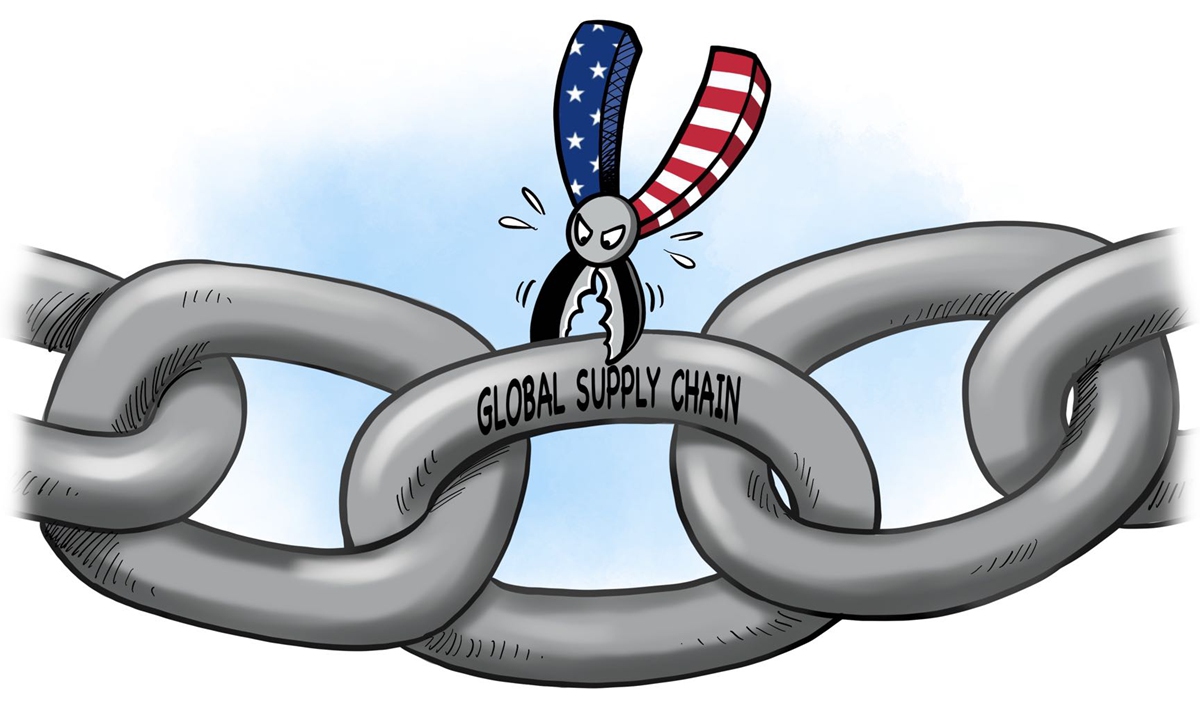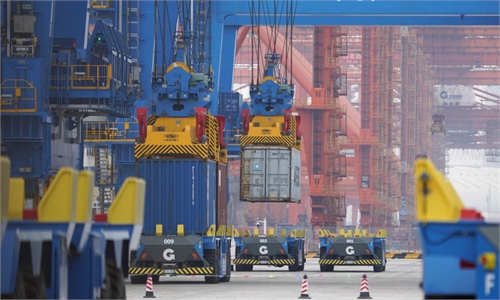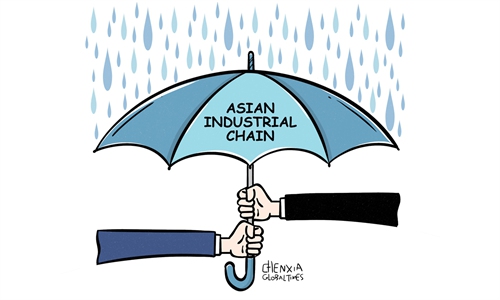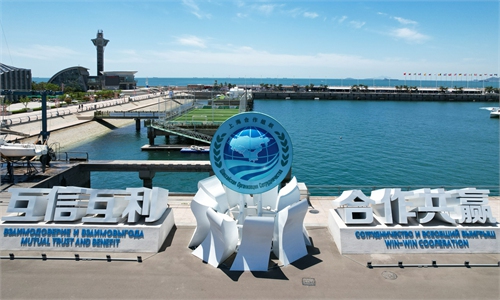
Illustration: Liu Rui/Global Times
As the US and India appear to move toward closer trade ties, it is essential for China to be vigilant as to Washington's plan to accelerate a global realignment of supply chains.India and the US have established a new working group to build sustainable supply chains and boost bilateral trade, the governments said in a joint statement on Thursday after the conclusion of the 13th India-US Trade Policy Forum in Washington, Reuters reported.
Also, Indian Union Commerce and Industry Minister Piyush Goyal said on Wednesday that US Commerce Secretary Gina Raimondo will visit India in March this year, accompanied by a high-powered delegation of global CEOs of large multinational companies, according to Indian media outlet ANI.
While there is no shortage of topics about trade frictions between India and the US, such as the US removal of India from its generalized system of preferences and India's digital competition law, it has to be admitted that the US-India economic and trade relationship is in a period of rapid development.
Given the messages from the Trade Policy Forum this time and senior US officials over recent months, increased US investment in India seems to be an inevitable trend in the coming future. India's status as one of the fastest-growing major economies may play a role in such development, but the more critical reason is Washington's ongoing push to shift trade, industrial and supply chains away from China. For instance, when visiting New Delhi in mid-November, US Treasury Secretary Janet Yellen mentioned that the US is providing America's largest solar manufacturer with up to $500 million in debt financing to build a facility in southern Tamil Nadu state in India, which is expected to boost India's solar manufacturing capacity and help diversify supply chains away from China.
Apparently, India has become an important pawn on the US' chessboard of "decoupling" and "breaking the chain" from China, which is aimed at containing China in the economic and trade fields. And in order to lure India to join its small clique, the US appears to be willing to spare no expense to invest and build plants in India.
If anything, the signals that the US is accelerating a global realignment of its industrial and supply chains to the so-called trusted trading partners are becoming increasingly clear, which could serve as a reminder to China of the external substituting pressure. For instance, by exporting more than $2.5 billion of iPhones from India from April to December, nearly twice the total recorded in the previous fiscal year, Apple is accelerating a shift from China, Bloomberg reported.
Under such circumstances, it is essential for China to attach great importance to the US attempt to undercut its manufacturing sector to ensure China's trade, industrial and supply chains can weather the test of geopolitical risks. For starters, the China-India economic and trade cooperation is indeed encountering some problems these days. However, that's not the reason to give up investing in India. The importance of China-India economic relationship should not be underestimated. Therefore, coordination is needed to address these difficulties, and efforts need to be made in this regard, such as increasing imports of Indian products to reduce trade deficit. Also, the two countries need to strengthen bilateral investment cooperation and coordination in terms of joint investment in some projects and corresponding investment coordination mechanism, so as to enhance the complementarity of supply chains. In fact, India's growing imports from China in recent years are a vivid example of such complementarity.
Second, guidelines and plans are needed to guide Chinese manufacturers to extend their industrial chains to other regions so as to avoid the blind transfer of manufacturing capacity.
Third, as China is estimated to become the world's largest consumer of goods soon, it needs to make good use of the market power while keeping opening up to the rest of the world, so as to consolidate the trade, industrial and supply chains. During the process, China needs to pay attention to strengthening regional economic and trade cooperation with its trading partners under the frameworks of the Regional Comprehensive Economic Partnership and the China-ASEAN Free Trade Area.
Regional cooperation will deepen economic ties among Asian economies and further strengthen the resilience of regional industrial and supply chains. China has a large market and massive manufacturing capacity, therefore strengthening regional cooperation is crucial for China to increase the stability of its supply and industrial chains.



